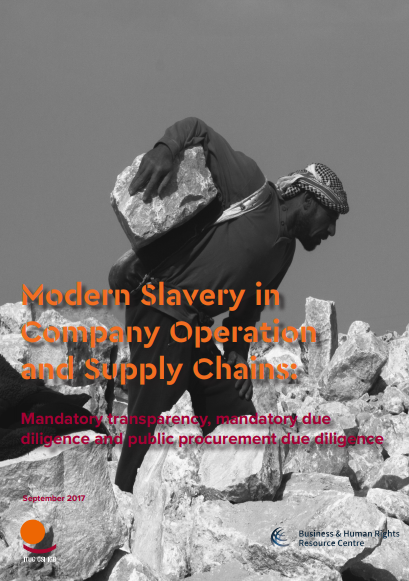Modern slavery is everywhere, but cleaning it up is possible. Due diligence and transparency is the key to ending modern slavery in supply chains.
The report gives an insight into the growing body of law and practice from international standards to emerging national legislation. It explains what leading governments are already doing to insist global business does more to eradicate modern slavery. This report reviews existing or emerging legislation that addresses modern slavery in companies’ operations and supply chains. It focuses on three related areas of legislation: mandatory transparency; mandatory due diligence; and public procurement.
This report was written by the Business and Human Rights Resource Centre (BHRRC) and commissioned by the International Trade Union Confederation (ITUC) with support from Friedrich Ebert Stiftung.

